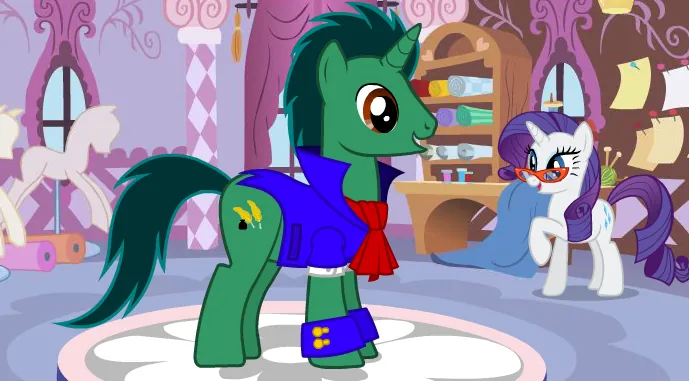DuplexFields
Ask me how the FairTax proposal works. All four Political Compass quadrants should love it.
No bio...
User ID: 460

Ooh, the unpleasantness jittery fuzz of felt versus the soothingly orderly corrugation of corduroy. Tags have never bothered me, but I used to have to cover my ears at basketball games. (To be fair, UNM’s B-ball arena “The Pit” is famously loud.)
What drew me into the FairTax at first were the end to FICA and the concept of permanent untaxed ownership. Since then, the more I compare it with other revenue collection methods, I haven’t found anything I’d characterize as a poison pill, or even anything I’m having to hold my nose over. I’ve only found more to love about it, practically and philosophically.
I personally haven’t run the numbers, but my parents sold the family home my dad spent his working years buying, and moved into a home they inherited. The math for making the former a rental in walking distance from the University of New Mexico campus, one of the highest occupancy areas of town, wouldn’t work out considering upkeep and repairs, a property management company, property taxes, income taxes, and the accountant they’d have to hire at least the first year to add rent to their income taxes. If the FairTax were enacted, they’d pay a simple 23% out of their renters’ check each month. It would be clean income after that, no profit/loss calculations messing up their Social Security, and no worrying about the next administration making their lives hell for 3% in the polls.
Your question 1, “am I [to assume] this tax policy will make people tilt even harder towards ownership vs rental?” I have a feeling this is so. I’ve always understood home ownership to be a part of the American Dream which (question 2) society is invested in encouraging. In America, every citizen is a nobleman, and his home should be his estate.
The most disordered people I know have been lifelong renters. An “efficiency” apartment is an abomination, a box built to impart pain and despair, but even the townhome apartment one of my best friends had stank of fear and giving up. And with vulture capital buying up complexes, it’s an even worse situation.
But aside from philosophical and psychological ideals, I’m sensitive to structural inequality. There’s a point to be made about giving everyone slack at once, not just one class. My gut says the slack is to be found in ensuring owners of second homes are renting them long-term to families that want to escape apartment life instead of renting them as Vrbos and Airbnbs. It seems abominable to me that hotels are long-stay while houses sit empty three out of seven days a week.
Let me add a thought experiment: what would be the effect on the housing market were all rental property owners exempted from the portion of income tax derived from renting? Grok suggests three outcomes:
- Grey Tribe: Tax exemptions for rental property owners would incentivize investment, increasing rental supply and potentially lowering rents. However, it might inflate property prices as demand for investment properties rises.
- Blue Tribe: The policy could exacerbate inequality, favoring wealthy landlords while offering no relief to renters or low-income homeowners, potentially widening the wealth gap.
- Red Tribe: Exempting landlords from income tax might destabilize public finances, reducing funds for community services like infrastructure, which could harm housing market stability and neighborhood quality.
Distorting the market in favor of “necessary” goods usually ends up with those goods costing just as much, other goods costing more, and inequality rising. That’s the primary reason the FairTax has no loopholes for housing, food, or medicine, just a flat pre-calculated rebate that makes governance effectively free for people at or below the poverty line.
Second buyer doesn't get taxed on the appreciation; the developer pays FairTax out of the first “retail” sale if the first sale occurs after the FairTax is legislated into existence, otherwise the govt. already got embedded taxes a myriad of ways. Sell at a loss, the govt. doesn’t pay anything.
As a renter, you’re already paying the income taxes of your landlord and property mgmt company’s hirelings, embedded in the price of your rent, similar to “utilities included”. This is a market distortion which is expected to be compensated for by rentals dropping 23% and then having the 23% added back in (30% exclusive) on the receipt as FairTax.
Used homes not being FairTaxed (except renovation/remodel costs) is a philosophical reward similar to owning DVDs costing less than renting them a dozen times or paying streaming and rarely watching. Besides, the homeowner will be paying FairTax on everything they’ll use for upkeep in the future.
- Voraciously, from age 3, whatever I could get my hands on that looked interesting but focusing on sci-fi almost exclusively from my teenage years onward.
- One best friend, serially, and I lost touch with each as he or I moved on. My oldest friend I've known for fourteen years.
- Yes, teen years.
- I watch anime when the show suited me, including shoujo series Sailor Moon in the mornings before high school and Tenchi Muyo! on Toonami in the decades before MLP. I'd also watched MLP G1 in the 80's for the adventure fantasy stories but shunned the song segments.
It turns out I’d already read Just An Assistant (which explicitly defends bondservanthood, not chattel slavery) and up-thumbed it a while back.
they really ought to be throwing themselves at the much easier problem of verifying prayer. It would be super cheap and testable anywhere
All that tells you is whether the prayer answerer is a deterministic system, or imitating one, or something which isn’t either, and whether the person praying “has the password” for getting the result they want.
(One problem often pointed out in schools is how much of schooling is essentially guessing what the teacher wants to hear.)
Biblical Christianity on the other hand is about being so different after being saved from sin that one might as well be a new person, “born again” as a new creation with God’s law written on one’s heart and the Holy Spirit urging loving choices toward any and all, even one’s enemies.
People with autism, like me, often have trouble understanding non-transactional relationships, as well as where duty and authority come into play without resentment in a loving relationship between unequals. God is not a system or a tricky genie.
Yes indeed. You can find my FiMfiction account under this username. Do you have a recommendation?
My parents visited China where stop lights are all yields. They were happy to return to Albuquerque driving.
This kind of thing is why I miss the low effort thread. News gets quick takes, “olds” get analysis, and bundling the twain gets a mad muddle.
So I remain unconvinced by this attempt to reconcile religion and reason. You might as well call it "Secular Christianity."
I’m a believer in Biblical historicity: actual resurrection, actual flood, actual week of creation, actual Trinity, actual Holy Spirit working in the world through the love of born-again Christians who are less than avatars and more than paladins, occasionally though miracles.
These “secular Christians” or “Imaginal Christians” seem to be the Sadducee equivalent to Evangelicals’ Pharisees: the former not believing in resurrection but nonetheless attempting to increase the general welfare and wisdom in the world, the latter proclaiming the glory of the miraculous and spiritual… as long as all the rules are followed.
What was old is new again.
No only to 3, it’s safest to flow with traffic and not be a rock in the stream, 5, I can always brake, and 6, I expect the rules I live by to be an agreement with other drivers, not a tool for me policing them.
As for additional driving scissor statements, I prefer to back into a parking spot, or pull through a double spot to be facing out. Some people call it “getaway parking,” others deride it as “ghetto.”
First, because my brain has been fully engaged in estimating my car’s size and position relative to other vehicles and the stationary world for at least five minutes, and I’m less likely to be in an accident in that altered state.
Second, because when I depart that spot, I can see somewhere between 3 and pi radians without obstruction, and can easily see pedestrians, shopping carts, and other vehicles.
The diagnostic criteria specify a level of impairment, which is clinical and in need of services. Thus subclinical autism is a real thing, but by definition cannot be diagnosed. I wouldn’t be eligible for diagnosis today, but up through about age 35 my impairment was significant and obvious.
Conspiracists who can see past the “controlled demolition” of 1 and 2 to the truth of the floor truss narrative nevertheless tend to get one-shotted by talk of building 7. They don’t know NIST also has a report on why that building collapsed.
Mine had almost no sensory issues; primarily social blindness, dyspraxia (clumsiness, stereotypically picked last in gym class or on the playground), and a touch of faceblindness.
I couldn’t understand emotions until I discovered a philosophical ontology in early 2001, which made me aware of emotions and how pervasive they are, but not how to use them right. I spent five years becoming codependent best friends with mood disordered people, then cut them out of my life, and then five years blindly trying to extract myself from their mind games and mind mazes.
Then in November 2010, in my darkest depths, I discovered My Little Pony Friendship is Magic. The show modeled good friendships, but also taught me the hidden mechanics of friendship through the framing device of small-town businessmares befriending an autistic grad student learning magical sociology. Just the first season reduced my blindness to emotions and good relationships to nearly none. The third season finale helped me understand even more.
Here’s what I’ve learned:
- Accurate philosophy, primarily ontology (lists of categories of things) can act as medication to us with autistic traits.
- Emotions are a third of human reality when viewed one way, four sevenths when viewed another, so understanding their hidden rules is important for living in this world. My emotional instincts may be impaired, but I excel at understanding systems, functions, and rules, so I set my mind to understanding.
- From Triessentialism: There are three types of emotions: identities, relationships, and imperatives. They can be caused by any experience, and need not correspond to the reality they model. Identity emotions are positive and negative valuations of (thing) that is (type), and can be in first, second, or third person, singular or plural. Relationship emotions are in the form of paired roles and distributed duties which one believes of oneself and the other person or people in the relationship. Imperatives are wants and needs which drive people toward or away from things, experiences, etc.
- From My Little Pony: the five Elements of Harmony are essential virtues underlying all mammalian relationships, from married lovers all the way to pets and their masters: Kindness, Honesty, Loyalty, Generosity, and Laughter. If they are in balance, supplied by all members of the relationship according to their ability, it will be harmonious. If one party goes against these virtues, leaving the other to supply them, it’s codependent. If two or more Elements are constantly betrayed, it’s toxic.
- Inspired by My Little Pony: the closeness of relationships is not just quantitative based on how long people are friends. There are three qualitative levels of friendship. Acquaintances share attributes, such as being neighbors, attending the same school, being in the same trade, or sharing an identity emotion such as being LGBTQ, furry, Christian, Chinese, etc. Friends share experiences, their nervous systems humming in tune at similar stimuli and offering similar responses, possibly working together for similar goals. Ohana share purpose, such as lovers looking to build a life, brothers at arms protecting each other sacrificially, parents giving up their entertainments to raise children, found family holding and healing each others’ griefs, and so on. Another way to see it is to think of who you invite into each room of a house: acquaintances in the living room, restroom, and dining room, friends in the kitchen and den, and ohana in the bedroom.
- The Fourth Step Moral Inventory of twelve step groups like CoDependents Anonymous can be performed with awareness of the Elements of Harmony, Levels of Friendship, and Ontology of Emotions. Doing so can help people understand the unconscious emotions they’ve built their successes and failures upon, the reasons behind their addictions, habits, hurts, and hang-ups.
This is enough material for a two hundred page book, but this summary is my answer to you.
- Prev
- Next


But that would take away Steve's freedom of movement for the part of the day he’s not trying to commit suicide! Can you in good conscience deprive someone of his freedoms?
(This is, of course, sarcastic. I agree your solution is probably the best, just like tying people to trolley tracks and sabotaging the brakes is already illegal.)
More options
Context Copy link